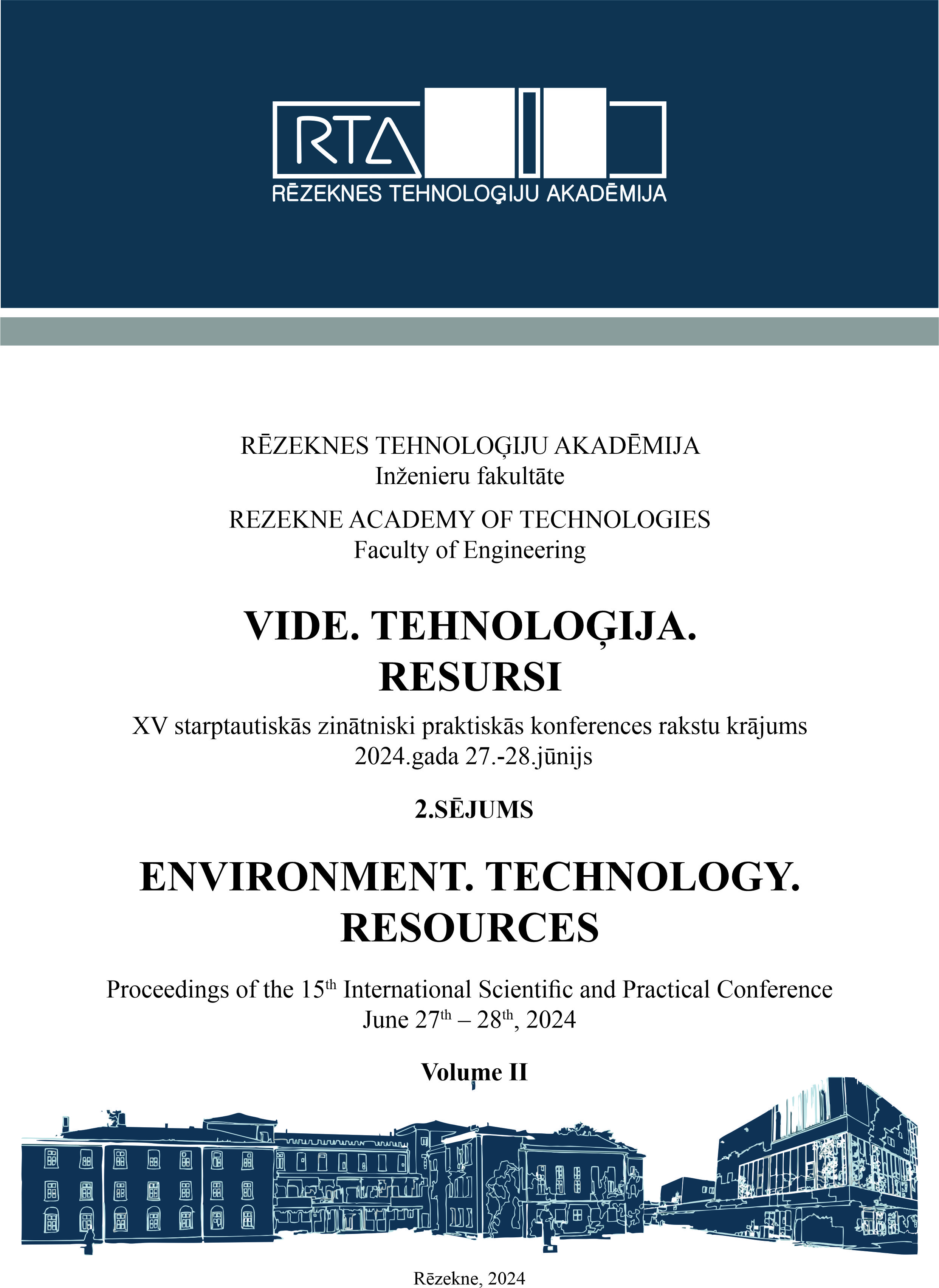ANALYSIS OF THE EXPERIENCE AND PROSPECTS OF THE IMPLEMENTATION OF THE MOODLE PLATFORM FOR THE ORGANIZATION OF DISTANCE LEARNING IN UKRAINIAN UNIVERSITIES
DOI:
https://doi.org/10.17770/etr2024vol2.8078Keywords:
a universal model of the organization of educational activities, distance learning, students of higher education, the Moodle platform (LMS)Abstract
The educational process has been rapidly transformed in the last couple of years due to the global changes of the twenties of the 21st century, which significantly affect the ways of organizing the educational process both in face-to-face and online form. Learning conditions provide for a constant increase in the amount of educational information and the need to improve the quality of its use with minimal time expenditure and in non-standard conditions complicated by various factors. Accordingly, the focus of attention of teachers and students is the tools of distance learning, in particular the educational digital platform Moodle, which allows to ensure a high technological level of organization of the educational process, regardless of external circumstances, in conditions of the impossibility of visiting an educational institution.
The purpose of the article is to analyze the experience of implementing the Moodle platform in the system of higher education of Ukraine as a tool of mixed learning; determining the level of respondents' ownership of Moodle resources; development of a universal model of distance learning organization on the Moodle platform.
Through a comparative analysis of educational content management systems, it has been proven that the Moodle platform is the best adapted to the environment of higher education in Ukraine, where since 2020, due to the COVID-19 pandemic, the format of educational institutions of various training levels has been changed from face-to-face to distance learning. The introduction of martial law in 2022 has even more actualized the problem of the development of distance learning tools, the need for teachers and students to master them.
The article analyzes the experience of introducing Moodle (LMS) as a single online platform in higher education institutions of Ukraine (the sample included 4 universities) with the aim of improving the educational process in the conditions of distance learning. In a comparative aspect, the results of the transformation study of the readiness of subjects of the educational process to use the opportunities and resources of the Moodle platform are presented. The study, organized in two stages, made it possible to analyze the work of teachers (filling electronic educational complexes, uploading test tasks) and students of education (use of the materials presented, educational activities) on the Moodle platform in 2020/2021 (Stage I) and to follow the transformation of the acquired experience during 2022/2023 (Phase II) in connection with the introduction of distance learning as the main form of obtaining higher education in the vast majority of regions of Ukraine.
A universal model for organizing the educational activities of master's students on the Moodle platform in distance learning conditions was developed and theoretically substantiated (using the example of studying the disciplines of the cycle of general professional training - "Psychological and pedagogical technologies", "Information systems and technologies", "Didactic systems and educational technologies in higher school".
References
O.A. Shcherbyna, “Automation Of The Creation, Filling And Administration Of Course Categories On The Moodle Website”, ITLT, vol. 93, no. 1, pp. 178–198, Feb. 2023. [Online], Available: DOI, https://doi.org/10.33407/itlt.v93i1.5117 [Accessed February 9, 2024].
N.M. Boliubash, "Organizational And Methodological Aspects Of Teaching Based On The Moodle Information Environment", ITLT, Vol. 33, issue March 1, 2013. [Online], Available: DOI, https://doi.org/10.33407/itlt.v33i1.761 [Accessed February 9, 2024].
A.M. Avramchuk, "A Model Of Competence Development Of A Linguist Teacher Regarding The Design Of Multimedia Electronic Educational Resources In The Moodle System", ITLT, vol. 61, issue 5, p. 50–60, October 2017. [Online], Available: DOI, https://doi.org/10.33407/itlt.v61i5.1810 [Accessed February 9, 2024].
I.Y. Halimon and S.I. Shevchenko. "The Role Of LMS MOODLE Educational Tests In Education Of Linguistic Profile Students", ITLT, vol. 72, issue 4, p. 246–257, September 2019. [Online], Available: DOI, https://doi.org/10.33407/itlt.v72i4.2455 [Accessed February 9, 2024].
М.Jalobeanu, A. Naaj, R. Dumbraveanu, C. Herman Using MOODLE platform in distance education. 2011. [Online], Available: Academia https://www.academia.edu/1125342/USING_MOODLE_PLATFORM_IN_DISTANCE_EDUCATION [Accessed February 9, 2024].
T.Martin-Blas, A.Serrano-Fernandez. “The role of new technologies in the learning process: Moodle as a teaching tool in physics“. Computers & Education, 52, 1. p. 35-44. 2009.
L. Čeponienė, “The Collaborative Designing Of A Personalized Hybrid Lms Using A Virtual Machine In A Cloud Environment”, ITLT, vol. 98, no. 6, pp. 142–163, Dec. 2023. [Online], Available: DOI, https://doi.org/10.33407/itlt.v98i6.5242 [Accessed February 9, 2024].
D.H. Hargreaves Personalising learning: Next steps in working laterally. London : Specialist schools Trust. 2004.
S. Zaiarna, “The Model For E-Teaching English Reasoning Writing To Law Students Based On LMS Moodle”, ITLT, vol. 76, no. 2, pp. 152–162, Apr. 2020. [Online]. Available: DOI, https://doi.org/10.33407/itlt.v76i2.3332 [Accessed February 9, 2024].
D.S. Kauts and Navdeep Kaur, “Effectiveness of Moodle- LMS on the Academic Achievement and Student Satisfaction among IX grade. Mathematics Learners,” Turkish Online Journal of Qualitative Inquiry (TOJQI), 12, 3, p. 1544-1555. 2021.
Downloads
Published
Issue
Section
License
Copyright (c) 2024 Vanda Vyshkivska, Yuliia Sylenko, Oksana Golikova, Tetianа Tsehelnyk, Oksana Patlaichuk

This work is licensed under a Creative Commons Attribution 4.0 International License.



